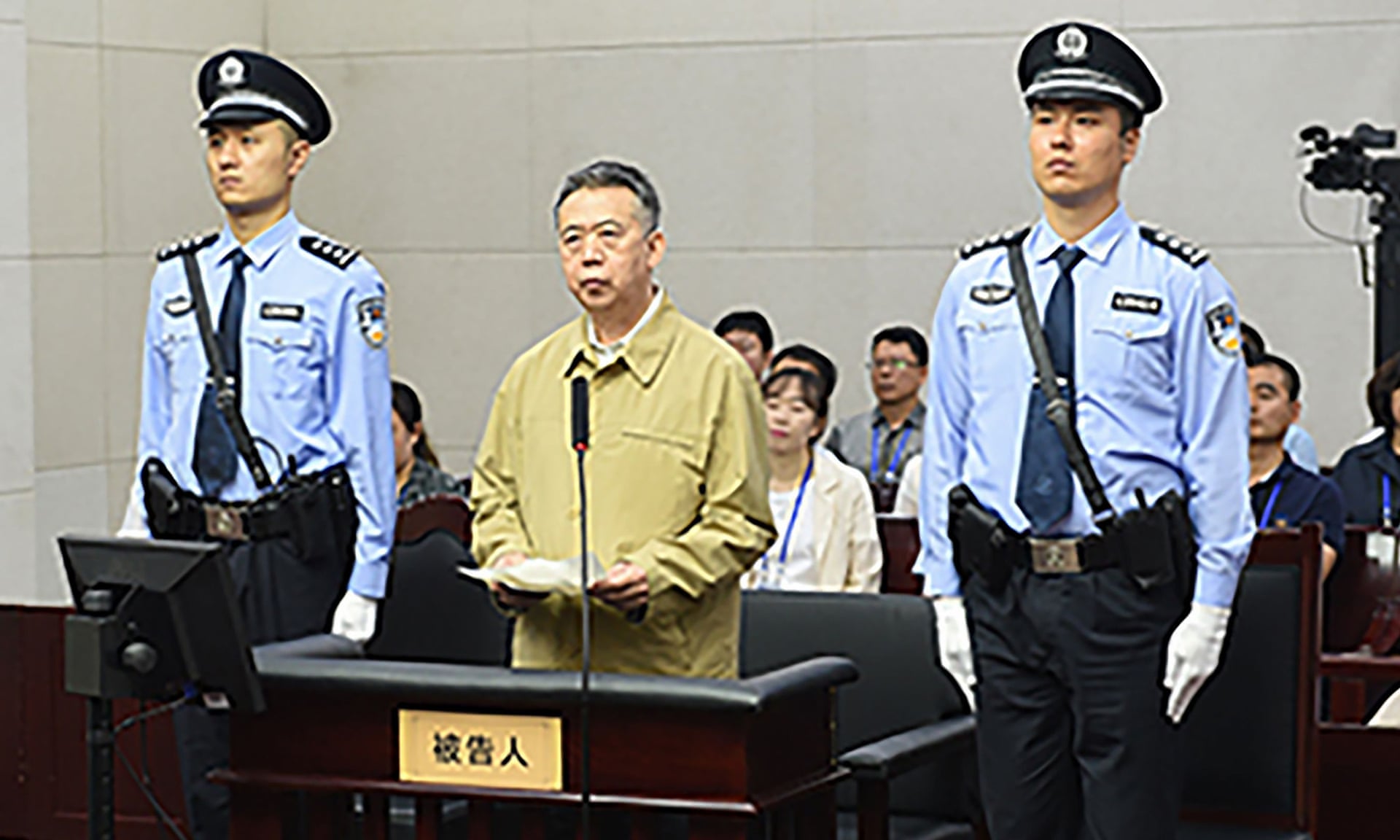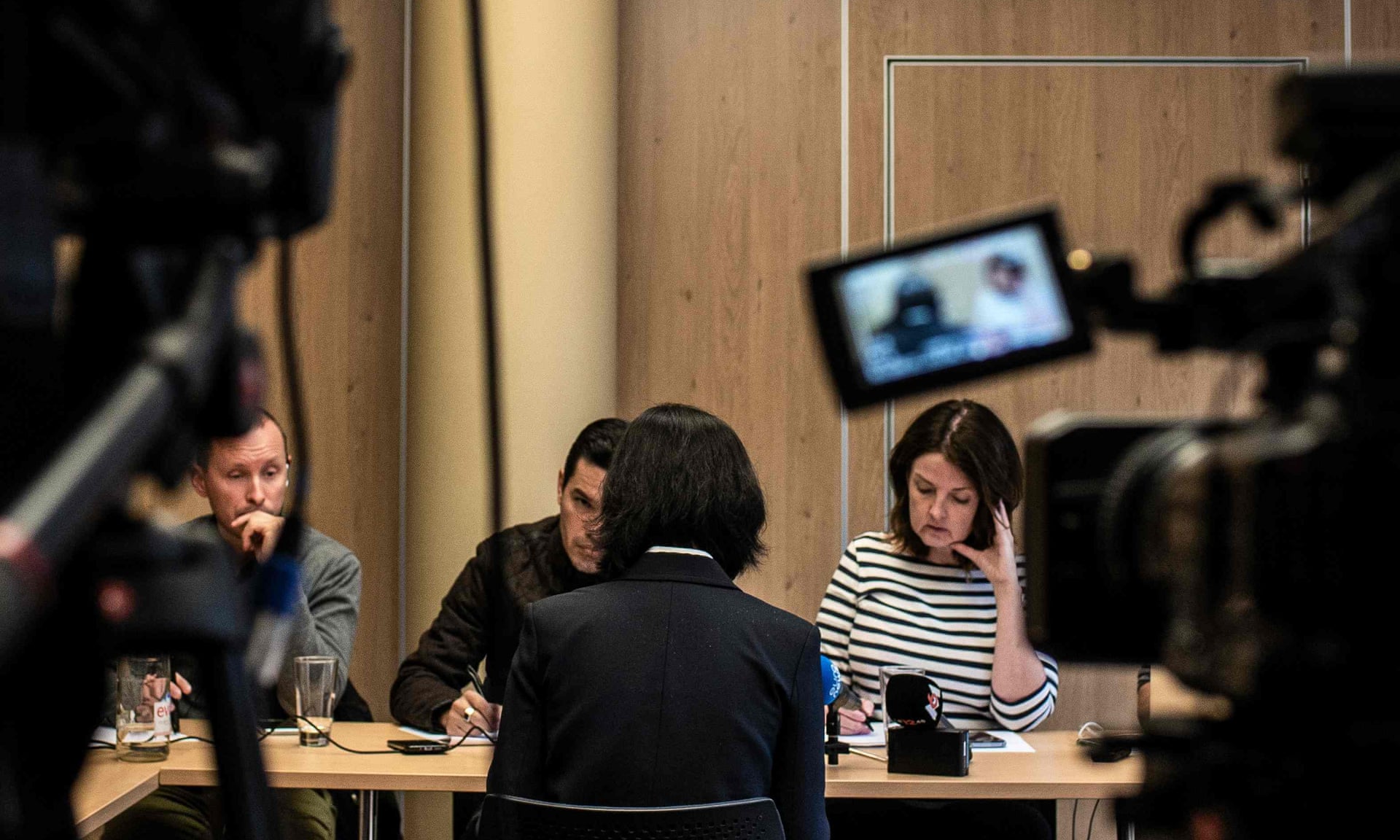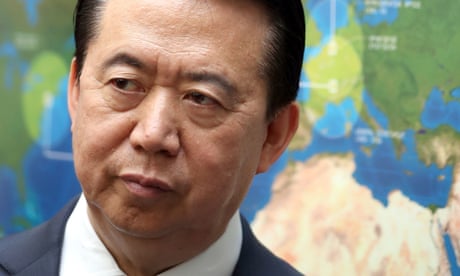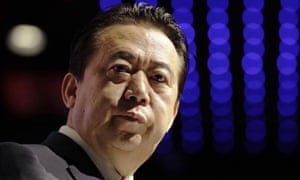Action comes after France gave asylum to wife of jailed former Interpol chief Meng Hongwei
By Emma Graham-Harrison

Former Interpol chief Meng Hongwei at his trial in Tianjin in June.
China has cut off all cooperation with France on police affairs, after Paris gave asylum to the Chinese wife of a former Interpol chief now in jail on corruption charges, the French newspaper Le Monde reported.
China has cut off all cooperation with France on police affairs, after Paris gave asylum to the Chinese wife of a former Interpol chief now in jail on corruption charges, the French newspaper Le Monde reported.
Chinese authorities told a diplomat in Beijing in late July that a decision had been made to halt all cooperation after Grace Meng was awarded political asylum in May, the newspaper reported.
Increasingly assertive internationally, Beijing has made the decision to suspend a key aspect of the diplomatic and security relationship with Paris at a time when it is already in the global spotlight over protests in Hong Kong and an escalating trade dispute with the US.
Meng first hit headlines last year, when she decided to go public about her husband’s sudden disappearance during a trip home to China in September.
Interpol had not been given any information about the whereabouts of Meng Hongwei, who had been elected president of the body in 2016, leading to the humiliating spectacle of the global police body pleading with China for information about its chief.
Increasingly assertive internationally, Beijing has made the decision to suspend a key aspect of the diplomatic and security relationship with Paris at a time when it is already in the global spotlight over protests in Hong Kong and an escalating trade dispute with the US.
Meng first hit headlines last year, when she decided to go public about her husband’s sudden disappearance during a trip home to China in September.
Interpol had not been given any information about the whereabouts of Meng Hongwei, who had been elected president of the body in 2016, leading to the humiliating spectacle of the global police body pleading with China for information about its chief.
Grace Meng at a press conference with journalists in France in 2018, in which she did not want her face to be shown.
In October, under international pressure, China finally admitted that Hongwei had been detained.
In October, under international pressure, China finally admitted that Hongwei had been detained.
He was not seen in public again until June, when he appeared in court in the north-eastern port city of Tianjin, confessed to accepting more than $2m in bribes and expressed regret for his crime, a court statement said.
A confession assures a conviction but it was not immediately clear when a verdict and sentence would be handed down.
A confession assures a conviction but it was not immediately clear when a verdict and sentence would be handed down.
Confessions in corruption cases, often televised, have become a hallmark of dictator Xi Jinping’s rule; he has put a very public crackdown on official graft at the heart of his rule.
Chinese authorities reportedly also wanted to charge Grace Meng, Le Monde said, but she stayed in France, where she has been given police protection, and sought asylum.
Chinese authorities reportedly also wanted to charge Grace Meng, Le Monde said, but she stayed in France, where she has been given police protection, and sought asylum.
Grace says she fears personal retaliation from Chinese authorities, and in spring France opened a judicial inquiry into a kidnapping attempt.
The end of police cooperation is likely to complicate Chinese efforts to seek fugitives in France, Le Monde said.
The end of police cooperation is likely to complicate Chinese efforts to seek fugitives in France, Le Monde said.
For Paris, it will complicate efforts to track down up to €500m stolen by fraudsters and sent by bank transfer to China.
It will also undermine work to protect intellectual property rights in China, where, despite decades of pressure from western governments, counterfeiting is still rampant.
It will also undermine work to protect intellectual property rights in China, where, despite decades of pressure from western governments, counterfeiting is still rampant.






 Grace Meng is now under French police protection
Grace Meng is now under French police protection 
